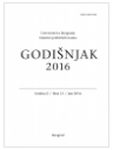Politička suština islamske teologije
Political Essence of Islamic Theology
Author(s): Jelena VukoičićSubject(s): Politics and religion, Comparative politics
Published by: Fakultet političkih nauka Univerziteta u Beogradu
Keywords: Islam; Islamic ideology; politics; Sharia law; national state; democracy; human rights
Summary/Abstract: Islam is one of the three main monotheistic religions, but also one of the most dynamic and most influential ideologies in the contemporary world. The main reason of the huge popularity of this ideology in the Muslim world is the fact that Islam, unlike some other religions, has a significant political dimension and, beside religious, also represents a political system. Islam has always been the key factor of social and political mobilization in Muslim history, in the periods of crisis as well as in the periods of stability, and no other ideology has ever managed to reach the power of faith. This situation also characterises modern Muslim states in which almost all relevant political organizations, to a certain extent, base their ideological principles on religious postulates. Beside that, in accordance with the trend of religious revival, that has affected Muslim countries and communities in the last few decades, there has been a growth of political organizations that strongly support the complete return to the traditional Islamic norms and laws, so it could be said that Islam is a political choice of the majority, both in the Muslim countries and within Muslim minorities throughout the world.
Journal: Godišnjak FPN
- Issue Year: 2016
- Issue No: 15
- Page Range: 41-57
- Page Count: 17
- Language: Serbian

